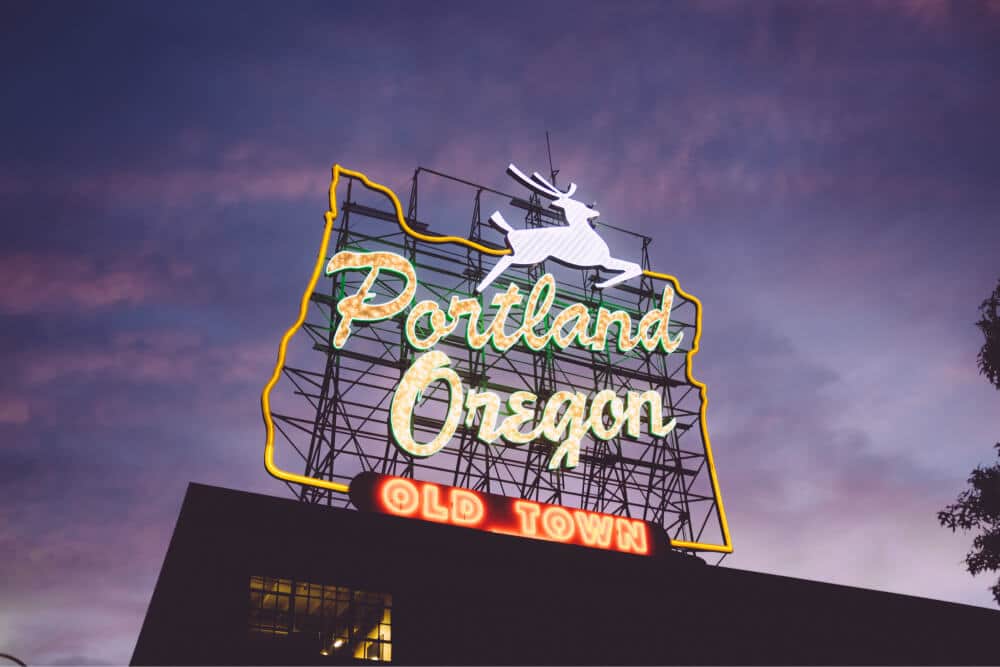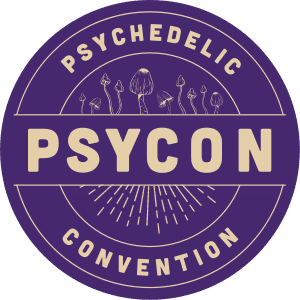Are Mushrooms or Psilocybin Legal in Oregon?

Several communities across the U.S. are beginning to welcome the idea of legalized psilocybin and other psychedelic compounds. However, Oregon is making waves in the burgeoning psychedelic industry by becoming the first state in the U.S. to legalize medical psilocybin, commonly known as “magic” mushrooms.
Voters approved Oregon Measure 109 in 2020, ushering in a new era for the psychedelic industry. But what exactly does the law allow? How will people access psilocybin mushrooms, and what will it take to be a part of the booming business?
Read on to learn the ins and outs of psilocybin in Oregon.
Are mushrooms legal in Oregon?
The passage of Oregon Measure 109 allows for the legal use of psilocybin for therapeutic purposes, making Oregon the first state in the U.S. to do so. However, it is important to note that this law does not legalize psilocybin for recreational use, and possessing psilocybin outside of a licensed therapeutic setting remains illegal. Psilocybin must be administered at a licensed service center under the strict supervision of facilitators. There will not be legal psychedelic mushrooms for sale—all trips must occur at these approved clinics and wellness centers, and there are no to-go bags.
Under the Oregon Psilocybin Services program, licensed individuals will be permitted to administer psilocybin to patients over the age of 21 with a qualifying mental health condition and who have received a referral from a healthcare provider. Patients can access psilocybin therapy as an alternative treatment option for depression, anxiety, and post-traumatic stress disorder.
Oregon’s psilocybin program:
In January 2023, adults over the age of 21 can access psilocybin products for therapeutic use. Oregon residents and tourists can take advantage of the program, and no medical card or doctor’s recommendation is required.
However, Oregon’s psilocybin program will require participants to receive their therapy at a licensed facility under the care of a trained professional. Waivers will need to be signed, listing any medical conditions. Participants may not operate a car or other heavy machinery for 24 hours after a psilocybin experience.
Dosages and costs will vary for psilocybin services, but early reports indicate an average cost of $1500 for consumers, which includes one integration aftercare visit. Multi-day psychedelic retreats could cost closer to $5000.
Who is in charge of psilocybin in Oregon?
The passing of Oregon Ballot Measure 109, aka the Oregon Psilocybin Services Act, put into motion the first legal psychedelic market in the country. Since then, the Oregon Psilocybin Advisory Board has been developing recommendations and writing draft rules for how the state’s program will unfold.
However, a subdivision of the Oregon Health Authority will be in charge of the industry once the recommendations are made. Known as Oregon Psilocybin Services, this agency will be tasked with licensing and establishing a regulatory framework as well as setting up a training program for psilocybin facilitators.
The group will begin accepting applications for psilocybin manufacturers, licensed facilitators, and other related psychedelic businesses on January 2, 2023, when the final rules for the program will be set. Right now, it appears there will be a non-refundable $500 fee to apply for licensure.
What we know so far about Oregon’s psilocybin rules
Members of the Oregon Psilocybin Services board have already released one set of adopted rules related to the state’s legal mushroom program. The rules cover various topics related to psilocybin in Oregon, from manufacturing guidelines to the licensed facilitator curriculum and testing standards.
Cultivators will not be allowed to utilize manure or pesticides in their production, and may not grow mushrooms in wood chips. Chemical synthesis of psilocybin is also prohibited. Processing must take place on food-grade equipment and all mushrooms must be completely dried.
Products must undergo required testing, showing they’re free from heavy metals and contaminants. A track-and-trace system, similar to what is seen in cannabis, will also be implemented. All psilocybin must be ingested orally—transdermal patches, inhalers, and injectables are not allowed.
The requirements for facilitator training are vast, with a long list of topics required to be covered. Licensed psilocybin facilitators will need to undergo a minimum of 120 hours of instruction as well as a practicum, however students with prior training may apply for accelerated status, bringing the training time down to 40 hours.
Businesses developing psychedelic facilitator training must be approved by the state, with the curriculum covering the following:
- Historical, Traditional, and Contemporary Practices and Applications
- Cultural Equity in relation to Psilocybin Services
- Safety, Ethics and Responsibilities
- Psilocybin Pharmacology, Neuroscience, and Clinical Research
- Core Facilitation Skills
- Preparation and Orientation
- Administration
- Integration
- Group Facilitation
The potential benefits of psilocybin and other psychedelics are leading to changes in drug policy and career opportunities. As the conversation around psychedelic medicine grows, so does the demand for experts in the field.
Careers in psychedelic research, therapy, and education are rapidly expanding, with psychedelic organizations and institutions like the Multidisciplinary Association for Psychedelic Studies (MAPS) offering training and education programs.
The growing interest in the field is also driving investment, with companies like Compass Pathways and MindMed raising millions of dollars in funding for the research and development of psychedelic treatments.
The shift in attitudes toward psychedelic medicine is creating new opportunities for those interested in pursuing careers in this emerging field.
More States May Legalize Psychedelic Mushrooms
Several US states and cities are considering loosening restrictions on psilocybin, a psychedelic agent derived from mushrooms, to treat patients with depression, anxiety, and addiction.
Studies have found psilocybin and other psychedelics can benefit various mental health conditions such as PTSD, anorexia, chronic pain, fibromyalgia, and addiction.
In 2020, Oregon became the first state to legalize psilocybin, while ballot initiatives that would legalize psilocybin are underway in Colorado and California. Additionally, states like Texas, Utah, and Washington have formed task forces to research the medical use of psilocybin.
The ongoing conversation around psilocybin legalization and its potential for treating various conditions demonstrates a growing interest in alternative and complementary forms of treatment beyond traditional pharmaceuticals. As research on the drug continues, more states may follow in Oregon’s footsteps and legalize the use of psychedelic mushrooms for medical purposes.
Psilocybin in Oregon: the cutting edge
With the world facing a growing mental health crisis, lawmakers and the public are ready to try something new. Stigmas associated with psychedelics continue to erode, allowing alternative wellness therapies to enter the mainstream.
Oregon is currently at the forefront of psilocybin legalization, and it won’t be too long before “magic” mushroom therapy could be approved for nationwide use. But for now, the Beaver State is setting the bar and will likely be an interesting case study for the potential of this particular plant medicine.
For those who want to dive even deeper into the world of psychedelic medicine and science, we encourage you to attend the upcoming Psycon psychedelic convention. This convention is an excellent opportunity to connect with experts in the field and learn more about the latest research and developments in psychedelic-assisted therapy and natural healthcare.
By attending Psycon, you can join a community of like-minded individuals who share a passion for exploring the potential benefits of these substances in a responsible and informed manner. We hope to see you there! Get tickets!




